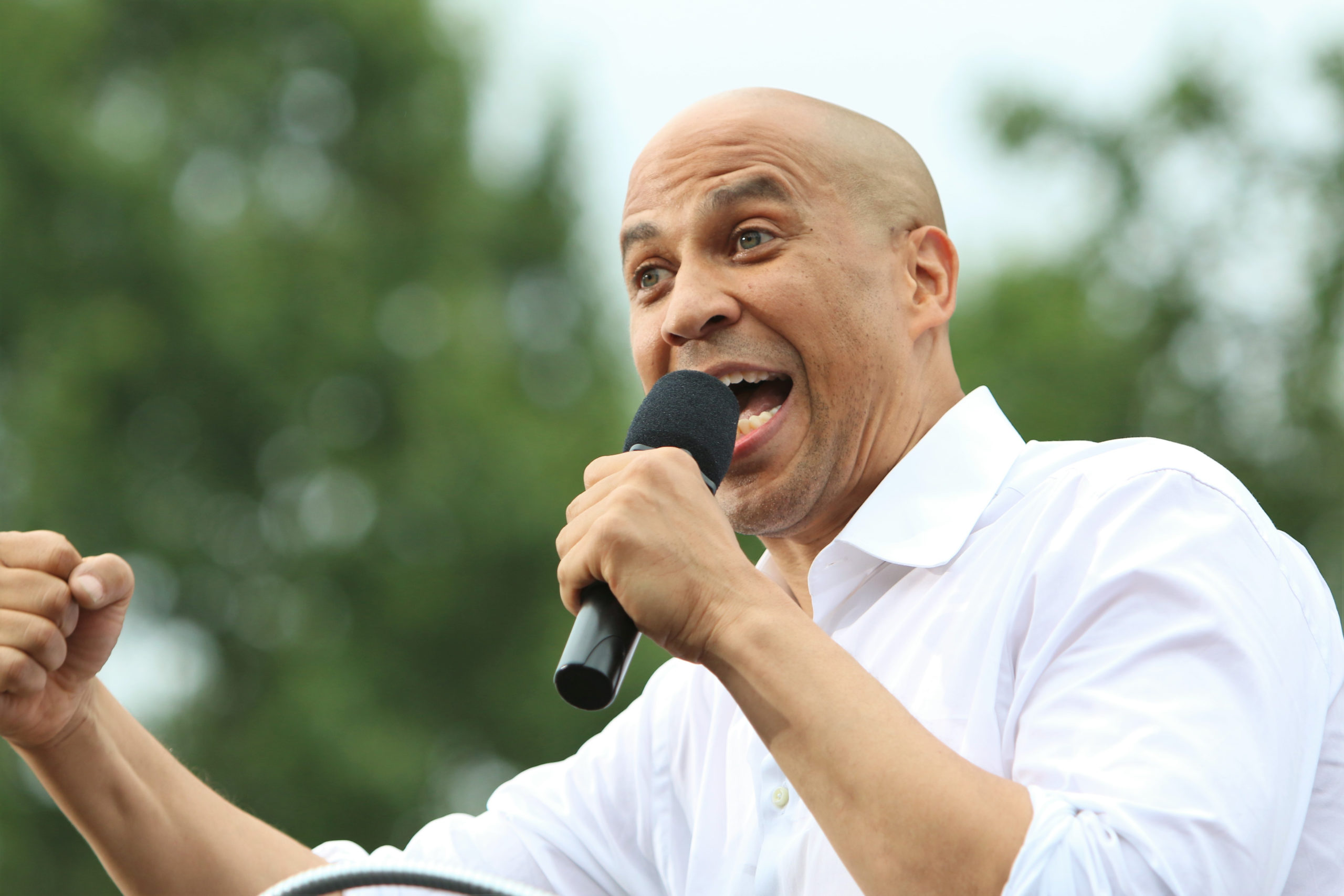Connect with us
Published
2 years agoon

U.S. Senator Cory Booker of New Jersey is speaking out in favor of cannabis reform in a new HuffPost op-ed. The piece, titled “Legalize It: Why Cannabis Reform Is A Civil Rights Issue,” voices how the U.S. justice system treats the country’s most marginalized groups differently, even for nonviolent drug offenses.
Booker begins the piece recalling the basement of the Willie T. Wright apartments in Newark, men of all ages standing together in a stand-room-only space. At only 29, freshly elected to the Newark City Council and a year out of law school, he said that “no classroom learning or political experience” had prepared him for the situation at hand.
“At this legal clinic that my council staff was hosting, I could see the pain on the faces of these men, many of whom had spent years struggling to reintegrate into society after being convicted of low-level, nonviolent drug crimes,” Booker wrote. “Beaten down by circumstance, they were now looking to defy the odds in a fixed game.”
He called this day a “vivid illustration of a reality I’d been aware of nearly my entire life,” pointing to data showing that Black people are more likely to be arrested for cannabis possession in every single state and referencing a 2021 analysis from ACLU of cannabis arrests in New York City’s five boroughs. The results concluded that people of color comprised 94 percent of those arrested.
“These injustices are precisely why we must ensure that restorative justice is the starting point of any cannabis reform legislation, not an afterthought,” Booker wrote.
With this belief in mind, Booker pointed to the discussion draft of the Cannabis Administration and Opportunity Act, first announced last fall, with Majority Leader Chuck Schumer and Senator Ron Wyden.The proposed bill incorporates elements of the legislation Booker introduced in 2017 and would remove the federal prohibition on cannabis; expunge federal nonviolent cannabis crims and reinvest funds into communities affected by the War on Drugs, prior criminal conviction, threats to employment and denial of basic social services.
“The Cannabis Administration and Opportunity Act provides America with the chance to reverse decades of unjust and discriminatory drug policy,” Booker wrote. “It’s also historic; with the support of Senator Schumer, this is the first time a Senate leader has called for ending the federal ban on cannabis.”
He then pointed to the “concerted effort” emerging in the Senate, supported by both Democrats and Republicans, to legalize cannabis on a federal level.
He referenced the progress we’ve made, the “promising moment we find ourselves in,” and said there is “no better political climate than now to pursue comprehensive cannabis reform.” Booker said the Cannabis Administration and Opportunity Act will be introduced next month, with a focus on restorative and racial justice, which will help to right the wrongs of the United States’ “failed drug policies and close a painful chapter of the war of drugs.”
According to Booker, the bill will also forge a path forward in securing economic justice for minority small business owners looking to gain a foothold in the ever-evolving cannabis industry.
“We know that our financial system upholds immense barriers to fairness and equality,” Booker writes, referencing studies showing Black and brown entrepreneurs consistently struggle to access funding they need to invest in employees, scale up their operations and expand business.
While Booker said he supports granting business owners access to financial resources, he noted that the solution to racial inequities in the banking system will not be solved by “simply opening the floodgates to billions of dollars for cannabis businesses.” Rather, the Cannabis Administration and Opportunity act will create a grant program to provide resources to minority entrepreneurs looking to launch cannabis-related businesses.
Booker returned to the initial story at Willie T. Wright Apartments, recalling a man asking him in frustration, “What is it going to take? It’s been over 10 years. What is it going to take for me to get a second chance?”
In closing, Booker responded:
“It’s going to take all of us, coming together, to reckon with the racial injustices that have plagued America and to understand the pain communities of color have felt for years. Only then will we have the moral determination, the empathy, and the political urgency to make sure no one is left behind as we rectify the many inequities caused by America’s drug laws. Only then will we make sure all people are afforded the justice they deserve but have long been denied.”


Study Reveals State Cannabis Legalization Lowers Immigrant Deportation


DEA Challenges Bid To Use Psilocybin Under ‘Right To Try’ Legislation


Vegans Rejoice as Farmers Switch from Chickens to Hemp


Louisiana Legislative Committee Unanimously Passes Adult-Use Cannabis Framework Bill


Louisiana House Bill to Regulate Hemp Products Advances Along With Senate Bill to Ban


Cresco Labs Workers Reportedly De-Unionize
